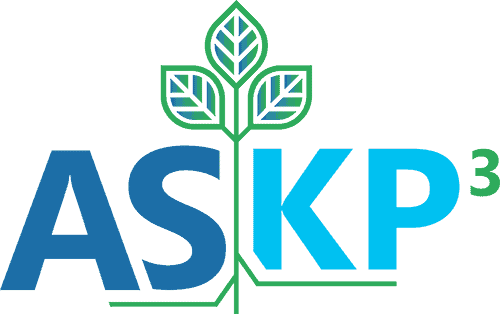Living with memory loss as a symptom of post-traumatic stress disorder (PTSD) can be incredibly challenging. The inability to remember key details, events, or important information can affect various aspects of a person’s life.
Understanding the relationship between PTSD and memory loss is crucial in finding effective coping mechanisms and support systems. Additionally, ongoing research offers hope for future treatments that may improve memory function in individuals with PTSD.
Understanding PTSD and Memory Loss
Defining PTSD: A Brief Overview
Post-traumatic stress disorder is a mental health condition that can develop after experiencing or witnessing a traumatic event. These events may include natural disasters, military combat, serious accidents, or physical or sexual assault. Symptoms of PTSD can include intrusive memories, nightmares, flashbacks, and extreme emotional distress. Additionally, memory problems often accompany the other symptoms of PTSD.
Individuals with PTSD may experience memory difficulties that affect both short-term and long-term memory. The process of memory consolidation, which involves encoding new information into long-term memory, can be disrupted in individuals with PTSD. This disruption can lead to challenges in recalling vital details or events from the past.
Moreover, the intrusive nature of traumatic memories can overwhelm an individual, making it hard to focus on daily tasks or remember non-traumatic events.
The Connection Between PTSD and Memory Loss
The link between PTSD and memory loss is complex and multifaceted. Studies have shown that individuals with PTSD may have difficulties with both short-term and long-term memory. Memory consolidation, the process of encoding new information into long-term memory, can be disrupted in individuals with PTSD.
This disruption can lead to difficulties in recalling key details or events from the past. Furthermore, traumatic memories themselves can be intrusive and overwhelming, making it challenging to focus on everyday tasks or remember non-traumatic events.
Understanding the intricate relationship between PTSD and memory loss is crucial in providing effective support and treatment for individuals dealing with these challenges. By recognizing the impact of PTSD on memory function, healthcare professionals and caregivers can tailor interventions to help improve memory recall and overall well-being for those affected by this condition.
The Impact of Memory Loss on Daily Life
Challenges in Personal Relationships
Memory loss can strain personal relationships, as it may be challenging for individuals with PTSD to remember important details or conversations. Loved ones may feel frustrated or unheard when information is forgotten or repeated. Open communication, patience, and understanding are crucial in navigating these challenges and maintaining healthy relationships.
Moreover, the emotional toll of memory loss on personal relationships cannot be understated. The fear of forgetting cherished moments or struggling to recognize familiar faces can lead to feelings of isolation and sadness. Building a support network that understands and accommodates these memory-related challenges is essential for the well-being of individuals with PTSD.
Navigating Work and Professional Responsibilities
Memory problems can also pose challenges in the workplace. Forgetting critical deadlines, instructions, or tasks can lead to errors or missed opportunities. It is essential for individuals with memory loss to develop adaptive strategies, such as using reminder systems or note-taking, to help manage their professional responsibilities effectively. Open communication with supervisors or colleagues about their condition can also foster understanding and support.
Furthermore, the impact of memory loss on work performance can be profound, affecting confidence levels and job satisfaction. Employers play a crucial role in creating a supportive environment that accommodates the needs of employees with memory-related issues. This may involve flexible work arrangements, clear communication channels, and access to resources that aid in memory retention and organization.
Coping Mechanisms for Memory Loss
Therapeutic Approaches to Manage Memory Loss
Therapy can play a crucial role in helping individuals with memory loss associated with PTSD. Cognitive-behavioral therapy (CBT), ketamine infusion therapy, and eye movement desensitization and reprocessing (EMDR) are three therapeutic approaches commonly used to help individuals process traumatic memories and find strategies to improve memory function.
These therapies can provide coping mechanisms, stress management techniques, and tools to enhance memory performance.
- CBT focuses on changing negative thought patterns and behaviors that can contribute to memory difficulties. By challenging distorted beliefs and learning new coping skills, individuals can improve their memory function and overall well-being.
- Ketamine infusion therapy provides swift relief for PTSD, targeting neural mechanisms to alleviate symptoms like flashbacks and hypervigilance effectively.
- EMDR, on the other hand, helps individuals reprocess traumatic memories in a safe and controlled environment, reducing the emotional distress associated with these memories and potentially improving cognitive function.
Lifestyle Changes to Improve Memory Function
In addition to therapy, certain lifestyle changes can help improve memory function for individuals with PTSD. Regular exercise, a balanced diet, and adequate sleep have all been shown to support cognitive function and memory.
Engaging in mentally stimulating activities, such as puzzles or reading, can also help keep the mind sharp. Additionally, minimizing stress and practicing relaxation techniques, such as meditation or deep breathing exercises, can have a positive impact on memory function.
Exercise, in particular, has been found to promote the growth of new brain cells and improve overall brain health. Physical activity increases blood flow to the brain, delivering essential nutrients and oxygen that support cognitive function.
Similarly, a healthy diet rich in fruits, vegetables, whole grains, and lean proteins provides the brain with the nutrients it needs to function optimally. Adequate sleep is also crucial for memory consolidation, as the brain processes and stores new information during sleep cycles.
The Role of Support Systems in Managing PTSD and Memory Loss
The Importance of Family and Friends
Family members and close friends can provide emotional support, understanding, and assistance in managing memory-related difficulties. Having trusted individuals who can help with reminders, organizing tasks, or simply provide a listening ear can make a significant difference in coping with memory loss. They can also offer stability and a sense of normalcy in the midst of cognitive struggles.
Moreover, family and friends can play a key role in encouraging individuals to seek professional help when needed. Recognizing the signs of memory loss and PTSD symptoms, they can assist in connecting their loved ones with appropriate resources and treatment options.
Seeking Professional Help: Therapists and Support Groups
Beyond personal relationships, seeking professional help can also be beneficial. Therapists who specialize in trauma and memory loss can offer guidance, coping strategies, and a safe space to discuss and process the challenges associated with PTSD and memory loss.
Through therapy, individuals can explore the root causes of their memory issues, develop personalized strategies for memory enhancement, and address any underlying trauma contributing to their symptoms.
Additionally, support groups consisting of individuals who share similar experiences can provide a sense of community, validation, and shared coping mechanisms. Connecting with others who understand the complexities of living with PTSD and memory loss can reduce feelings of loneliness and offer a platform for mutual support and encouragement. Group members can exchange tips for managing memory difficulties, share personal stories of resilience, and foster a sense of belonging in a non-judgmental environment.
Future Research and Hope for PTSD-Related Memory Loss
Current Developments in PTSD and Memory Loss Research
Scientists and researchers are continuously exploring the relationship between PTSD and memory loss. Advancements in neuroimaging techniques, such as functional magnetic resonance imaging (fMRI), are providing insights into the brain regions involved in memory formation and consolidation. This growing knowledge can potentially lead to targeted interventions and therapies for memory loss in individuals with PTSD.
Potential Treatments on the Horizon
Some emerging treatments, such as virtual reality therapy and neurofeedback, are showing promise in improving memory function for individuals with PTSD. These innovative approaches aim to provide immersive experiences to help individuals process traumatic memories and strengthen neural connections associated with memory formation.
While more research is needed, these potential treatments offer hope for enhanced memory function and overall well-being for those living with PTSD.
Parting Thoughts
In conclusion, living with memory loss as a symptom of PTSD is a complex and challenging experience. However, with a combination of understanding, coping mechanisms, and support systems, individuals can navigate the impact of memory loss on their daily lives. Ongoing research brings hope for future advancements in treatments that may offer improved memory function and a brighter future for those affected by PTSD-related memory loss.
To learn about the PTSD treatment options we offer at Restoring Wellness Solutions, contact us today to schedule a mental health consultation.






